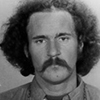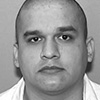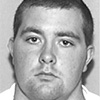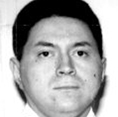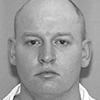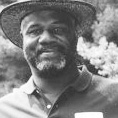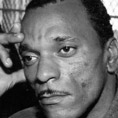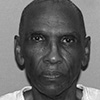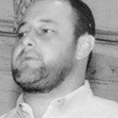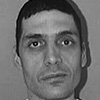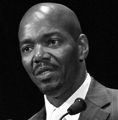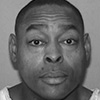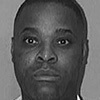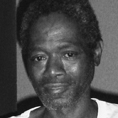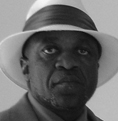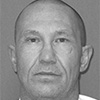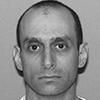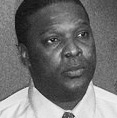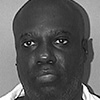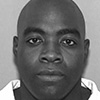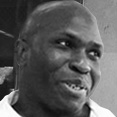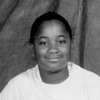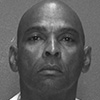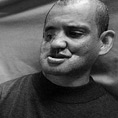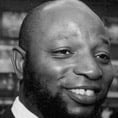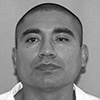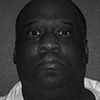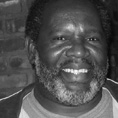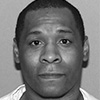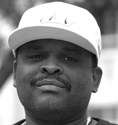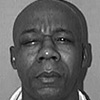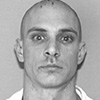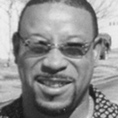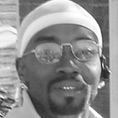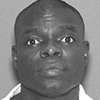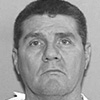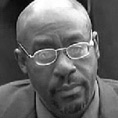The Texas Tribune analyzed 86 overturned convictions, finding that in nearly one quarter of those cases courts ruled that prosecutors made mistakes that often contributed to the wrong outcome. This multi-part series explores the causes and consequences of prosecutorial errors and whether reforms might prevent future wrongful convictions.
Click on each tab to view each part of the series.
- Prosecutor Errors
- Kerry Max Cook
- Eric Olson
- Calls for Change
- Seeking Solutions (Video)
- Texas Wrongful Conviction Explorer
Courts Found DA Error in Nearly 25% of Reversed Cases

From the moment 4-year-old April Tucker died, Debbie Tucker Loveless and John Harvey Miller told police and prosecutors that she had been mauled by dogs. But in 1989, the couple was convicted of murdering her and sentenced to life in prison.
Four seemingly endless years later, in 1993, the Texas Court of Criminal Appeals overturned their convictions, after a state district judge ruled prosecutors had withheld critical evidence that vindicated the couple.
Between 1989 and 2011, at least 86 Texas defendants including Loveless and Miller had their convictions overturned, according to the National Registry of Exonerations. In an extensive analysis of court rulings, news reports and pardon statements, The Texas Tribune found that in nearly one-quarter of those cases — 21 in total — courts ruled that prosecutors made mistakes that in most instances contributed to the wrong outcome. The wrongfully convicted in those cases spent a combined total of more than 270 years in prison. (See an interactive presentation with details about all the cases.)
In the cases, judges found that prosecutors broke basic legal and ethical rules, suppressing important evidence and witness testimony and making improper arguments to jurors. Despite the courts’ findings of some serious missteps, the State Bar of Texas reports very little public discipline of prosecutors in recent history.
The State Bar does not track discipline of prosecutors separately from other lawyers. But Linda Acevedo, the chief disciplinary counsel for the State Bar who has been at the agency since 1985, said she could recall three prosecutors who were publicly reprimanded. None of the reprimands were related to the 86 wrongful convictions.
“Right now, there is next to no oversight of what prosecutors do,” said Jennifer Laurin, a professor who teaches criminal procedure at the University of Texas School of Law.
A deadly attack
Loveless was overwrought when Laura Ardis met her inside the Gatesville women’s prison in 1993. Four years after she had been convicted of beating and stabbing to death her 4-year-old daughter, Loveless still grieved for the girl and remained adamant that she did not kill her.
Loveless told Laura Ardis and her husband, lawyer Robert Ardis, the same story that Loveless’ husband had recounted from the Huntsville prison unit. A pack of frenzied dogs, they said, had attacked April Tucker, who was bleeding to death when the couple found her in the woods near their home.
Robert Ardis was appointed to represent the couple after their 1989 conviction. Laura Ardis, who was his legal assistant, was convinced of their innocence.
“John was a very sincere person, and he was very forthcoming,” Laura Ardis said. “I may have been naïve back then, but I did feel like that he was telling the truth.”
But Hopkins County Assistant District Attorney Alwin "Al" Smith had convinced jurors that the couple cut April with a hunting knife and beat her with a curling iron. The jury sentenced the two to life in prison.
Soon after he began investigating the case, Robert Ardis discovered 38 photos that prosecutors had not copied for the couple’s lawyers during trial. He tracked down doctors and animal experts who said the photos — which showed bruises in the shape of paw prints and dog hair on April's body — confirmed Loveless and Miller’s version of what happened.
“This is not a case of child abuse unless you want to call it a case of animal abuse of a child,” said Dr. Charles Petty, a former Dallas County medical examiner, who examined the photos.
In a 1993 finding, state district Judge Lanny Ramsay said the couple fell victim to Smith’s decision to withhold critical information that made it impossible for defense lawyers to present an effective case. The prosecutor disputed the allegations, arguing he provided the couple’s lawyers with access to the evidence. But the Texas Court of Criminal Appeals overturned the convictions that same year.
Questions of immunity
High-profile cases have recently brought national attention to the issue of prosecutorial misconduct of the kind alleged in the Loveless-Miller case. In Louisiana, the U.S. Supreme Court overturned a $14 million jury award for John Thompson, who spent 14 years on death row because prosecutors withheld evidence. The high court ruled that prosecutors were immune from civil liability for their errors.
In Texas, the case of Michael Morton has sent shockwaves through the criminal justice system. Morton spent nearly 25 years in prison for his wife’s 1986 murder in Austin. DNA evidence led to Morton’s exoneration last year, and to the arrest of the man who is now facing trial in the murder. During their investigation, Morton’s lawyers say they discovered that the prosecutor did not disclose key evidence at trial that pointed to his innocence. This fall, an unprecedented legal inquest is set to determine whether the prosecutor-turned-state district Judge Ken Anderson will face criminal charges for his role in the wrongful conviction. Anderson says he did nothing wrong.

In the aftermath of those cases, lawmakers, defense lawyers and prosecutors in Texas are debating prosecutorial accountability and criminal justice reforms with an eye toward the 2013 legislative session.
Defense lawyers and reform advocates argue that attorneys for the state wield an immense amount of power that goes largely unchecked even in cases of egregious misconduct. The public, they say, is becoming increasingly leery of a justice system that safeguards the death penalty, yet doesn't hold accountable the prosecutors who argue for it. They say it is just as disconcerting for people to see a system that allows killers to go free while innocent Texans languish behind bars.
“It does shake the public’s belief and confidence in their justice system,” said Bexar County state district Judge Sid Harle, who ordered the inquiry into allegations of misconduct in the Morton case. “Without jurors coming in and believing in the system, we don’t function.”
But many prosecutors say that serious, intentional mistakes are rare. Most of the court rulings have found only errors that are not tantamount to misconduct. And many prosecutors argue that internal mechanisms in the legal and judicial system already adequately punish bad actors in rare instances of misconduct.
“There’s a lot of folks out there really straining too hard to overstate the extent of the problem,” said Rob Kepple, executive director of the Texas District and County Attorneys Association.
Prosecutors’ rules
In Texas, as in most other states, prosecutors are generally bound by the same ethical rules and criminal laws as private lawyers. But the Texas Disciplinary Rules of Professional Conduct set out additional requirements for lawyers for the state.
“A prosecutor has the responsibility to see that justice is done, and not simply to be an advocate,” the rules state.
Among those is an expansion of the so-called Brady Rule, named for the 1963 U.S. Supreme Court decision that requires prosecutors to provide defendants with exculpatory evidence — information that could help prove their innocence.
In 17 of the 21 Texas cases where courts found prosecutorial error, the judges ruled that prosecutors failed to give defense lawyers exculpatory evidence.
In some instances, like the cases of Loveless and Miller, prosecutors allegedly withheld crucial documents. Judge Ramsay faulted Smith, the assistant district attorney, for failing to provide the couple’s lawyers with copies of autopsy and emergency room photos of the girl.
After Robert Ardis was assigned to the case, he and his wife visited Miller in prison. Miller told them that when he found April bleeding to death near their home, the girl said that dogs had attacked her. The Ardises promised Miller they would investigate his theory.
Robert Ardis demanded that prosecutors show him photos from the autopsy and emergency room where April was treated. The Ardises made copies and showed the photos to doctors and animal experts. Dr. Charles Odom, a medical examiner who worked in Hawaii and in Dallas, testified that a dog attack was the “only reasonable interpretation” of the evidence.
The Ardises also discovered testimony from a social worker, who said she witnessed attacks by the same dogs that were suspected in the girl’s death.
Because prosecutors failed to divulge that information, Ramsay ruled, the couple’s original defense lawyers were left with little ammunition to refute the state’s theory that the couple methodically carved the girl’s body and used push-pins to make the fatal abuse look like a dog attack.
"The jury got it right"
Nearly two decades later, Smith, the lead prosecutor in the case, said Ramsay was wrong, and that he objects to the allegation that he withheld evidence. In objections filed with the Texas Court of Criminal Appeals, Smith said he never received reports of other attacks by the dogs. And he said in an interview that he allowed attorneys for Loveless and Miller to look at every photo he had.
The problem in the case, Smith said, was that during the trial, Ramsay did not provide the couple with funds to hire experts to review the evidence. That, he contends, is the real reason Loveless and Miller were freed — which he still believes was a mistake.
“I still believe that the jury got it right,” he said. “I’ve never had [a case] where a child was that injured. Never. Even as we’re talking about it, her images are coming back, and it is very unpleasant.”
Soon after the Loveless-Miller case, Smith moved on to become trial chief for the Bowie County Criminal District Attorney and an assistant U.S. attorney in the Eastern District of Texas. Now, he is in private practice in Texarkana.
Smith said there’s nothing he would have done differently in the Loveless-Miller case, and he has talked with the current district attorney about trying the couple again.
“There’s no statute of limitations on murder,” Smith said. “He’s still free to prosecute them.”
Decades behind bars
More than half of the overturned convictions in which courts found prosecutorial error were murder cases, 13 in total. And in six of those cases, the defendant was freed from death row. Among the cases with findings of error, the shortest sentence any defendant received was 20 years.
In the case of Anthony Graves, who was exonerated in 2010, the U.S. 5th Circuit Court of Appeals found that Burleson County District Attorney Charles Sebesta never told defense lawyers that another man, Robert Carter, confessed that he was the sole killer in the massacre of a Somerville family. Both Graves and Carter were sentenced to death. Graves spent 18 years in prison — 12 on death row, where he twice neared execution — before prosecutors dismissed the case against him because of a lack of evidence.
In his final statement before his lethal injection in 2000, Carter again took full responsibility for the crime. Still, Sebesta has stood by his work in the case.
Despite the decades that innocent men and women have lost behind bars, none of the prosecutors involved were publicly disciplined.
“We have a good set of disciplinary rules on paper,” said Robert Schuwerk, a professor at the University of Houston Law Center who served on the committee that wrote the Texas Disciplinary Rule of Professional Conduct. “The question is, is anybody going to enforce them?”
Private and public discipline
The absence of a public reprimand, though, doesn’t mean none of the lawyers were disciplined. Lawyers can also be reprimanded privately.
A grievance process is triggered whenever someone files a complaint with the State Bar. Complaints, which can be filed by anyone, are screened, and lawyers are given 30 days to respond to misconduct allegations. If the bar determines misconduct may have occurred, a lawyer can choose to have a hearing in district court or with a local grievance committee.
The only time any of those proceedings become public is when the bar issues public sanctions, which include reprimands, suspensions or disbarments. The bar can also mete out private disciplinary measures, but because the proceedings are secret, there’s no way to determine how many times such measures have been taken in cases involving prosecutorial misconduct.
Betty Blackwell, an Austin criminal defense lawyer who has served on the State Bar’s Commission for Lawyer Discipline, said the oversight agency works hard to ensure that lawyers don’t abuse the public trust. But she said the nature of wrongful convictions combined with state laws that limit prosecutors’ liability for the errors make it difficult for the State Bar to take action.
Hidden exculpatory evidence typically isn’t uncovered until many years after a conviction is handed down. By then, the four-year statute of limitations on prosecutorial ethics violations has generally expired.
Additionally, because the cases are old, memories of the details have often faded. Prosecutors may have moved on, and, particularly in large district attorney's offices with dozens of litigators, it’s hard to know who did what in a case and when.
And Blackwell said prosecutors aren’t publicly admonished simply for making mistakes, even when the mistake results in an overturned conviction. The bar rules require proof that the lawyer intentionally behaved unethically.
“Just because a case was reversed for failure to turn over Brady evidence doesn’t mean there was an ethical violation,” Blackwell said.
Heart-wrenching results
Whether the combined errors that led to the convictions of Loveless and Miller were ethical violations or not, Laura Ardis said, the result was heart-wrenching for the couple.
Not only did they grieve over April's death, but the couple also spent four years separated from their older children, who lived out of state with relatives. After Loveless and Miller were freed, Laura Ardis said, the two separated and moved on with their lives. Over the years, they lost touch with the Ardises.
For Robert Ardis, who has Alzheimer’s disease, his work on the case remains one of his proudest accomplishments, his wife said. He keeps an award for it on the wall of his nursing home room.
And Laura Ardis holds fast to the memory of the happy day when the couple was released from prison. Reporters and TV cameras clamored around their small law office. The owners of the western wear store next door to the law firm told Loveless and Miller they could pick out any new clothes they wanted for the day. Loveless and Miller were reunited with their children, who had grown into teenagers.
“It was just amazing that day,” Laura Ardis said.
Prosecutor Errors Haunt Long Exoneration Fight

Kerry Max Cook had been out of prison for about three years when his son was born.
As Kerry Justice Cook slept in his crib, his father would peer down at his tiny son and cry, battling back suicidal thoughts that have haunted him since experiencing unspeakable horrors during 20 years on Texas’ death row.
“I’d tell K.J., ‘You’ve got to hurry up so you can talk to me. I’m so alone,’” Cook recalled. “’Poppy’s not going to make it.’”
K.J. is 11 now, and talking seems to be one of the mature and articulate tween’s fortes. He introduces his father to crowds at speaking engagements across the world.
“I find it quite amazing that he was able to go there for 22 years and go through every obstacle which he had to go through,” the fifth-grader wearing a Mickey Mouse T-shirt said, brushing shoulder-length blond hair away from his face. “I think he’s the most respectable man that I know.”
Cook, 56, was convicted of the 1977 rape and murder of Linda Jo Edwards in Tyler. That conviction was ultimately overturned. A second trial ended in a hung jury, and a third ended with a conviction that was reversed after a court found it was tainted by prosecutorial misconduct. Before Smith County attempted to try Cook a fourth time, he agreed to a plea deal in 1999. He pleaded no contest and was set free. DNA testing subsequently revealed another man’s biological matter on the victim’s clothes.
Cook has written a book about his experience, actors like Tim Robbins have portrayed him in a play about exonerations and he teaches young people about overcoming adversity. In the eyes of the law, though, Cook remains a convicted murderer. Normal life, he said, is beyond his reach.
“This freedom means nothing with a conviction,” he said. “Because this isn’t freedom. This is another prison cell.”
Thirteen years after his release, Cook is battling with Smith County prosecutors to officially clear his name. Cook is seeking new DNA testing that he hopes will result in the addition of his name to a list of at least 86 Texas inmates whose convictions were overturned from 1989 to 2011. In an analysis of court rulings, news reports and pardon statements in each of the 86 cases, The Texas Tribune found that in nearly a quarter of the cases — 21 in total — courts found prosecutorial errors that in most instances contributed to the wrong outcome.
The State Bar of Texas, though, said it had publicly disciplined very few prosecutors in recent years. Some lawmakers and criminal justice reform advocates have called for increased accountability for prosecutors whose errors result in wrongful convictions that forever change the lives of innocent people and their families.
Cook says his efforts to clear his name are doomed if he must continue to fight in Smith County, where the Texas Court of Criminal Appeals ruled that prosecutorial and police misconduct has “tainted this entire matter from the outset.” He has asked an appeals court to move his case.
“Everything that could go wrong in the prosecution did, and has, and still continues to,” Cook said.
Smith County prosecutors past and present insist that Cook is guilty. Cook, they have argued, is simply after millions of dollars he would be entitled to from the state if he were officially exonerated. Current Smith County Criminal District Attorney Matt Bingham declined to comment.
During Cook’s first trial in 1978, prosecutors argued that he had beaten, stabbed and mutilated Edwards — who lived in the same apartment complex as him — in a sexual frenzy triggered by a movie that depicted a cat mutilation. At age 22, Cook was sentenced to death.
The U.S. Supreme Court in 1988 vacated his first sentence because a state psychologist interviewed Cook without his lawyers present. Cook’s second trial in 1992 was declared a mistrial because the jury was deadlocked. His third trial in 1994 resulted in another death sentence.
The Texas Court of Criminal Appeals reversed that sentence in 1996, citing the prosecution’s “numerous undisputed acts of misconduct” in Cook’s case, such as withholding exculpatory evidence — information that could help prove his innocence — and making a deal with a witness who lied and then lying about the deal to the jury.
The court ruled that prosecutors did not tell Cook’s lawyers that the 16-year-old daughter of James Mayfield, Edwards' boss with whom she had been having an affair, had made repeated death threats against her. The affair became public after Edwards attempted suicide, and Mayfield was forced to resign from his job as a dean at Texas Eastern University (now the University of Texas at Tyler).
Mayfield, his wife and his daughter said they were together at home on the night of Edwards’ murder, and no one from the family was charged with a crime. Efforts to reach Mayfield through his former attorney were unsuccessful.
Prosecutors also misrepresented to the jury a deal they made with a jailhouse snitch, the appeals court ruled. Edward “Shyster” Jackson testified that Cook confessed to the killing. The prosecutor told jurors there was no deal, but the court found that Jackson’s murder charge was reduced to involuntary manslaughter. He later admitted his testimony was fabricated.
The court also found that prosecutors introduced misleading testimony about the age of Cook's fingerprints at the scene. The officer testified that the age of the fingerprints put Cook in the apartment at the time of the murder. But the officer later said his testimony was a mistake that could not be scientifically supported and the prosecutor pressured him to falsely testify.
While most of the prosecution’s errors were remedied by the third trial, the court said, that proceeding too was tainted by the use of questionable testimony from a witness who was with Cook the night of the murder. Robert Hoehn told jurors that he and Cook had sex and that Cook was aroused at the mutilation scene in the movie. But prosecutors didn’t tell Cook’s lawyers that Hoehn gave contradictory testimony to the grand jury, saying that there was no sex and that Cook hadn’t paid attention to the movie that allegedly inspired his sexual brutality.
The court overturned Cook’s conviction but allowed Smith County to prosecute him again. In 1999, as Smith County District Attorney Jack Skeen prepared for Cook’s fourth trial, semen found on underwear that Edwards wore the night of the attack was submitted for DNA testing. Before the test results were revealed, Skeen offered Cook a plea deal.
Cook was 42 then. His brother had been murdered, and his father died while Cook was in prison On death row, Cook said he had been repeatedly raped and abused. He pleaded no contest, refusing to admit guilt but knowing that legally he would remain a convicted murderer.
Later, the DNA analysis showed that the semen belonged to Mayfield, who had previously testified that he and Edwards had not had sex for weeks before her death.
“I was wrongly convicted,” Cook said. “But you just have the stain, you have the scarlet letter, because you’re not judicially exonerated.”
After the testing, The Associated Press reported, Smith County investigators said the DNA results could not show when the semen was deposited and that the stain didn’t implicate Mayfield.
Cook has tried to move on after his release. He got married and started a family. He adores K.J. They ride bikes together, read books, go to movies and even take the occasional jog — K.J. said his once rail-thin dad is trying to lose a few pounds.
“As much as you can give that to one person or one thing in your whole life, this kid saved my life,” Cook said of his son. “Not me. Not God. K.J. saved my life.”
But finding regular employment with a murder conviction and a 20-year hole in his resume is tough.
“I can’t overcome that,” Cook said, sitting in the living room of the apartment he rents from a friend whose name is on the lease. “Today, I’m just as poor as the day I walked out.”
This year, Cook launched a final effort to clear his name, asking for DNA testing on the remaining evidence in the case. But if the decision about his ultimate guilt or innocence remains in Smith County, Cook worries the outcome will be unfair.
He sees a number of familiar names at the Smith County Courthouse. The wife of the original prosecutor in Cook’s case, A.D. Clark III, is a Smith County district judge. So is former District Attorney Skeen, who presided over Cook’s second, third and fourth trials and is Clark’s first cousin. And the husband of state district Judge Christi Kennedy, who is set to preside over the DNA testing, worked for Skeen in the district attorney’s office at the time of Cook’s second and third trials.
As in other Texas cases where prosecutorial errors contributed to overturned convictions, Clark was never publicly disciplined by the State Bar of Texas despite the Texas Court of Criminal Appeal’s rebuke of his office's work. He is now a lawyer in the Texas attorney general’s regional office in Tyler. He declined to be interviewed for this story but has denied wrongdoing.
Cook and his lawyers allege they’ve uncovered more oddities in the Smith County prosecutor’s files. They learned that one of the lead investigators, Sgt. Eddie Clark, kept the knife used to murder Edwards at his home as a souvenir. And they were informed that much of the evidence in the case was destroyed without Cook’s knowledge just months after state lawmakers passed a law requiring that defendants be notified when such items were to be discarded.
“When I was thought to be a criminal, they put me in jail for 22 years,” Cook said. “Why can’t they be punished for their wrongdoings?”
While Smith County agreed to allow the DNA testing, Bingham, the current prosecutor, has fought to keep the case in Tyler. He argues that the prosecutors who committed misconduct are no longer with the district attorney’s office and that Kennedy has demonstrated no bias against Cook. In court filings, Bingham wrote that Cook and his lawyers have presented a “litany of unfounded and bad faith charges” against the county.
In an interview earlier this year, Assistant Smith County District Attorney Michael West questioned Cook’s motives for pursuing exoneration more than a decade after his release.
“It seems like if I was all fired up and gung ho about being innocent, I wouldn’t have waited so long,” West said.
Cook, though, said he doesn’t care about the potential $1.6 million he could receive in state compensation if he were exonerated.
“There’s not enough money in the world to pay me for what they’ve done to me,” Cook said. “I just want my life back.”
K.J., meanwhile, said the battle has been hard on his father. But he said he understands.
“To have a dad like this is like something that God did,” he said. “To have a dad that’s gone through this much, and to have a dad who went through this and is still alive today and standing tall, is quite amazing.”
Son Seeks Answers in Father's Wrongful Conviction
It had been 14 years since their last meeting. Father and son sat uncomfortably last fall in the well-appointed home of the Houston lawyer who helped free Eric Olson’s father from prison.
The only clothes Eric remembered seeing his dad wear before were prison whites. Now, he noticed, his dad was dressed just like him: blue jeans, a button-down shirt, even similar shoes.
How should he feel about meeting the man who he had believed savagely killed his mother and felt no remorse? At age 28, with his pregnant wife at his side, Eric saw his father Michael Morton as an innocent man for the first time. Was this really happening, he wondered. It felt like a movie.
“I don’t know if I should feel tears of joy or laughter. I remember mostly being kind of numb the whole night, mostly sitting there, listening, just waiting for ... I don’t know. Waiting for everything to make sense again,” Eric recalled. “Only months before that, we were still supposed to hate him.”
Eric was 3 years old and had recently recovered from open heart surgery on Aug. 13, 1986, when his mother, Christine Morton, was beaten to death in her bed in their North Austin home. Six weeks after her death, police arrested Morton, pulling his sobbing toddler from his arms as they led him to a police cruiser. Six months after losing his mother, Eric lost his father, too, when a Williamson County jury convicted Morton of murder and sent him to prison for life.
Unbeknownst to Eric, as he and his wife, Maggie, commemorated the 25th anniversary of his mother’s death last year with a visit to her grave in Houston, the truth as he knew it was unraveling. That day, Morton’s lawyers received DNA test results that ultimately proved his innocence and connected another man to Christine Morton’s slaying.
Morton’s lawyers — John Raley of Houston and Nina Morrison of the New York-based Innocence Project — had also discovered secreted in the files of the sheriff’s investigators and prosecutors critical evidence that they argue could have prevented the wrongful conviction.
Morton is one of at least 86 Texas defendants who saw their convictions overturned between 1989 and 2011 after spending years in prison. The Texas Tribune analyzed court rulings, media reports and pardon statements in those cases to determine how many times the courts decided that prosecutorial errors, such as withholding crucial evidence, played a role in the wrongful conviction. (See an interactive presentation with details about all the cases.)
In nearly a quarter of the cases — 21 in total, including Morton’s — courts found prosecutorial errors that usually contributed to the wrongful convictions.
Since his release in October, Morton has vowed to seek accountability for the prosecutor whose mistakes he said contributed to his wrongful conviction. Morton says his goal is to ensure that what happened to him does not happen to others. And Eric and Maggie Olson say they are determined to help, too.
“He may not be the first person or the last person to do something like this,” Eric said of Williamson County state district Judge Ken Anderson, the former district attorney who prosecuted Morton’s case. “That’s what’s really screwed up about the whole thing.”
In September, Tarrant County state district Judge Louis E. Sturns will lead a court of inquiry that will decide whether Anderson should face criminal charges for his work in the case.
Anderson, who declined to be interviewed for this story, has publicly apologized for the judicial system’s failures in Morton’s case. More than a month after Morton’s release from prison, in a press conference outside the historic courthouse where the 1987 trial took place, Anderson said he felt sick over the wrongful conviction. But he denied any wrongdoing.

"In my heart, I know there was no misconduct whatsoever," he said.
Eric has few memories of the life he shared with his biological parents. He remembers the hospital where he had surgery to correct a congenital heart defect and that the family had a dog. But, he knows now, it may be a blessing that other memories disappeared.
Among the withheld evidence that lawyers found in the prosecutor and sheriff’s files was a haunting transcript of a conversation between Eric’s grandmother and a sheriff’s detective. She recounted details of a disturbing talk she had with the 3-year-old about the murder one week after his mother’s funeral.
“Mommy’s crying. She’s — stop it. Go away,” his grandmother said he told her. She asked why his mother cried.
“'Cause the monster’s there,” Eric said.
Delicately, she pressed for more details.
“He hit Mommy. He broke the bed,” Eric said.
“Is Mommy still crying?”
“No, Mommy stopped.”
Then, she asked the question she was most dreading: “Was Daddy there?”
“No,” he said. “Mommy and Eric was there.”
Eric said that he has no recollection of those events now, and that after his mother’s death and his father’s conviction, family members did all they could to protect him and give him a normal childhood.
“I look back now, and I should have been really, really messed up,” Eric said during an interview in a hotel room not far from the courthouse where his father was convicted and where documentary filmmakers were working on a movie about the family’s nightmarish ordeal. He glanced across the room adoringly at his cooing, blue-eyed infant daughter. Her name: Christine Marie Olson, after Eric’s mother. “But everything came out pretty good.”
His mother’s sister, Marylee Kirkpatrick, who lived in Houston, won custody of her sister’s son.
The custody agreement required Kirkpatrick to ensure that Eric visited his father twice each year at the Wynne prison unit in Huntsville.
Eric remembers sitting at a picnic table in the prison yard. His dad always brought lemon drops. His aunt would sit at the table, too, quietly reading.
As he grew older, though, Eric said, he realized how weird the situation was. When he was a teenager, he wrote a letter to his father explaining that he wanted to stop the visits.
“I don’t remember it being as emotional to say I didn’t want to go anymore,” he said. “I just did. I didn’t feel connected to it much anymore.”
Around the time the visits stopped, Kirkpatrick married Paul Olson. To Eric, who changed his last name when he turned 18, they are Mom and Dad.
For his father in prison, news of his son’s name change was shattering. The hope of proving his innocence and reuniting with his son had kept Morton afloat in the grinding boredom and harsh reality of prison.
For Eric, though, changing his name was simply the next logical step in moving on with his life, being part of the family he loved.
And so, life moved on. Eric went to college at Texas State University-San Marcos. He graduated, moved back to Houston and began working at the Catholic preparatory high school he had attended. There, he met Maggie Mahoney in 2009, and they were married last year.
Not long after the wedding, Eric received an email from Raley, Morton’s pro bono lawyer in Houston. Raley, who Eric had never met, wanted to talk to him about developments in his father’s case.
“I thought it was just some whacko,” Eric said. “I just responded quickly: ‘I don’t know who you are. I don’t know what this means. Don’t ever contact me.’”
His outreach rebuffed, Raley contacted his own pastor, who knew the president of Eric’s school. The president called Eric into his office and explained that Morton was going to be released from prison. They did not want him to learn the news from the television.
For the first time, Eric said, he independently researched his father’s case.
“The story I was told my whole life was, ‘He killed her, and he’s in prison, and we don’t have to talk about it if you don’t want to.’ I didn’t want to, because I was a kid,” he said. “I rarely thought about it.”
It finally made sense, he said, why his father had been denied parole. When victims’ services workers had explained to Eric that his father was up for parole a few years earlier but had been rejected, the family figured Morton had done something wrong.

The parole board, Eric learned, had told Morton that if he simply accepted responsibility for killing his wife, he could be released. Morton refused.
“It turns out he had said, ‘All I have left is my innocence,’” Eric said. “That’s pretty bold. I don’t think I would have done it. I would have gotten out. Get me out of here.”
With Morton, 57, now out of prison, the father and son are building the relationship they started to forge that night at Raley’s house. They see each other about once a month. Morton fawns over his granddaughter and marvels that his son is now a father.
“Fortunately or unfortunately, now I have to get to know him, because I never did. I never knew who he was, or what his favorite food was,” Eric said. “Being introduced to him was like remembering a movie I saw when I was a kid, like meeting a movie star.”
There are still challenges ahead, though, and many questions to be resolved.
For the family who raised him — Christine Morton’s sister, brother and mother — Eric said the discovery of Morton’s innocence was difficult. It brought a flood of terrible, long-buried memories along with new guilt and questions about how things could have gone so wrong.
The Kirkpatricks, Eric said, had a close relationship with Anderson, the prosecutor.
“He convinced everybody that’s what the truth was, and that’s what they thought forever,” Eric said. “They didn’t have any other source of truth.”
Their truth eviscerated, they must now endure another trial. The DNA that exonerated Morton was connected to Mark Norwood, a 58-year-old dishwasher from Bastrop. Norwood has said he is innocent, but his DNA has also been connected with another similar Austin murder from 1988. He is expected to face trial next year in the Morton case.

Eric plans to be present for that trial and for the inquisition into Anderson’s role in Morton’s prosecution. For Eric, one of the biggest unanswered questions is how such profound mistakes could have been made.
It goes beyond the transcript of the conversation about what 3-year-old Eric saw the morning his mother died that Morton’s lawyers did not see. When they dug through the old files, his lawyers discovered other clues that pointed to the very scenario that Morton had described from the start; he said that an intruder killed his wife after he had left for work early that morning. Neighbors told police they saw a man in a green van casing the Mortons’ home and running into the woods behind it. And there was a report that Christine Morton’s credit card had been used fraudulently after she died.
“Part of my life was taken away, first of all, because my mother was killed. Then I don’t understand why somebody would want to continue that chain of events by taking away someone’s father,” Eric said.
Eric Nichols, a former prosecutor for the Texas attorney general’s office and a former assistant U.S. district attorney, is representing Anderson in the court of inquiry. Morton’s lawyers allege that Anderson committed criminal prosecutorial misconduct by withholding evidence despite the trial judge’s order to provide it.
What has been lost in the debate over Anderson’s role in the case, Nichols said, was that the district attorney was following the lead of Sheriff Jim Boutwell, who had been the top lawman in Williamson County since 1978 and before that was a Texas Ranger. He famously flew an airplane above the University of Texas tower in 1966, exchanging fire with gunman Charles Whitman, and in 1983, Boutwell arrested Henry Lee Lucas, once thought to be the most prolific serial killer in U.S. history.

Boutwell died of cancer in 1993.
In a nine-hour deposition, Anderson said he could not remember details of the prosecution. If he had known of information that pointed to Morton’s innocence, he insisted, he would have told defense lawyers.
“He has apologized not only to Mr. Morton but to all persons who have been affected by this, which clearly includes Mr. Morton’s son, Eric,” Nichols said.
Eric said it would be nice to see Anderson held accountable for his role in Morton’s wrongful conviction, but he refuses to dwell on the negative. His priority, he said, is reuniting his family — the one he grew up with and the father he never got to know.
“If there’s a better time to have this all come full circle, I can’t think of it. This is like a movie,” Eric said. “But it’s good now. It’s not like a scary movie anymore.”
Calls for Change in Wake of Wrongful Convictions

There’s no balancing of the books when you lose two and a half decades of your life to prison, Michael Morton says. He can’t make up for missing his son Eric’s childhood while he was stuck behind bars for a murder he didn’t commit.
“We’re starting from square one,” he says. “Today’s a new day and it’s a new experience and it’s a new life, and you make the best of what you have.”
Eric was 3 when Morton was sent to prison for his wife’s 1986 murder. It would be 25 years before DNA exonerated him. When the murder charge was dismissed in December, it was Texas’ 86th overturned conviction since 1989. But had the district attorney who prosecuted Morton turned over all the evidence in his files during the trial, the former grocery store manager and his lawyers argue, the entire tragedy could have been thwarted.
Now, in a rare court of inquiry that is being watched statewide, Morton is pursuing criminal charges against Williamson County state district Judge Ken Anderson, the former prosecutor who tried his case — and who made errors a judge ruled contributed to Morton’s wrongful imprisonment. Morton is also urging legislators to implement new laws that hold prosecutors accountable for serious missteps.
“I can’t make up for those lost years, but what I can do is prevent what happened to me from happening to someone else,” he says.

Prosecutors have long enjoyed relative immunity for mistakes they make in their work. A Texas Tribune examination of 86 overturned convictions between 1989 and 2011 revealed that courts found prosecutor errors in nearly 25 percent of the cases. Most of the errors contributed to the wrong outcome, and the 21 men and women involved in those cases spent a total of more than 270 years in prison before their convictions were overturned.
The State Bar does not track prosecutor discipline separately from other lawyers. But Linda Acevedo, the chief disciplinary counsel for the State Bar who has been at the agency since 1985, says she can recall three prosecutors who were publicly reprimanded. None of the reprimands were related to the 86 wrongful convictions.
In the wake of Morton’s case and other high-profile exonerations, some lawmakers and reform advocates have joined his call for new laws to hold prosecutors accountable for mistakes that derail the lives of the wrongly convicted and their families.
Many prosecutors, though, argue that reform advocates exaggerate the problem. They say instances of true prosecutorial misconduct are rare and appropriate sanctions are in place to deal with them.
“You don’t just throw the baby out with the bathwater,” says Tarrant County District Attorney Joe Shannon. “All you’ve got is a few anecdotal situations where things went awry.”
What goes wrong?
Both prosecutors and defense lawyers agree that the vast majority of state lawyers are ethical and take the consequences of their decisions seriously.
“Human error is a natural part of any process,” Shannon says.
Prosecutors must often balance their constitutional duty to seek the truth with the demands of traumatized victims and a nervous public that wants to see a culprit apprehended.
And, Shannon says, district attorneys rely heavily on police investigations. If police work is sloppy or incomplete or if witnesses provide conflicting statements, the truth can be obscured even from prosecutors with the best intentions.
But tunnel vision can become a problem for both prosecutors and police, and it’s one that Dallas County District Attorney Craig Watkins says he has seen often in wrongful convictions. He created a conviction integrity unit that boosted Dallas County’s exoneration numbers to the highest in the state: 37 between 1989 and 2011.
Often, he says, police and prosecutors had made up their minds about a suspect too early in their investigation.
“As evidence comes in, we have to follow that path,” Watkins says. “There’s a failure to follow the other leads.”
Jennifer Laurin, an assistant professor at the University of Texas School of Law who teaches criminal law, says that when the brain is convinced of a particular scenario, people often have trouble processing incompatible information.
Under the Brady rule, named for a 1963 U.S. Supreme Court decision, prosecutors are required to provide defendants with exculpatory evidence — information that might prove they didn’t commit the crime. Under Texas law, prosecutors are allowed to decide which information in their files is exculpatory. But if a prosecutor is convinced that a person is guilty, he or she may be unable to recognize evidence that would be exculpatory, Laurin says.
In 17 of the 21 overturned Texas cases with prosecutorial errors, the courts ruled that exculpatory evidence was not given to defense lawyers.
“In the heat of that pursuit, it can become easy sometimes to do the wrong thing for the right ends,” Laurin says.
Sometimes, Watkins says, errors are made for even simpler reasons.
“Truth may not be the issue,” he says. “The issue may be winning.”
When prosecutors are punished
Even when a court rules that a prosecutor has made a mistake, that doesn’t mean discipline is in order, says Betty Blackwell, an Austin criminal defense lawyer who has served on the agency’s Commission for Lawyer Discipline.
To cross the line from prosecutorial error to prosecutorial misconduct that is punishable by the State Bar, there must be a determination of the prosecutor’s intent.
“The bar can only take action if a person knew it was [exculpatory] and didn’t turn it over,” she says. “It’s really a higher standard.”
The State Bar did not sanction former Burleson County District Attorney Charles Sebesta in the case of Anthony Graves. The U.S. 5th Circuit Court of Appeals ruled that Sebesta had violated the Brady rule by failing to disclose that another man had confessed that he alone had committed the murders for which Graves was convicted. But the State Bar dismissed a complaint filed against Sebesta for his work in the case, which put Graves in prison for 18 years, including 12 years on death row.
Even if the State Bar does decide that a prosecutor engaged in misconduct, the public may never know that a sanction was issued. That’s because the agency can mete out private disciplinary measures.
In a rare move, the State Bar acknowledged last year that it was investigating a complaint against Anderson for his work in the Morton case. Asked about the outcome of the State Bar investigation, Anderson’s lawyer Eric Nichols said that there was “nothing public to report.”
Discipline of prosecutors is also rare because of the four-year statute of limitations on ethical violations, says Robert Schuwerk, a professor at the University of Houston Law Center who served on the committee that wrote the Texas Disciplinary Rules of Professional Conduct. In many cases, it takes much longer than four years to uncover suppressed evidence.
In his own review of public prosecutorial discipline over the past 23 years, Schuwerk says he discovered only three instances of reprimands.
“Essentially, the disciplinary system has not done well by us,” he says.
Seeking solutions
Reform advocates say a few tweaks could help prevent prosecutorial errors and improve accountability for intentional violations.
Defense attorneys and many prosecutors agree that open file policies that allow criminal lawyers access to the state’s records would help prevent evidence suppression. The American Bar Association recommends reciprocal open discovery between the defense and prosecutors.
Nichols, who represents former Morton prosecutor Anderson, was previously a state and federal prosecutor. True open file policies, he says, would protect both the accused and the prosecutor.
“The prosecutor will not be in a position 25 years after a trial has been conducted of having to answer questions based on memory of what was disclosed to defense counsel,” he says.
In instances where prosecutors are found to have intentionally withheld evidence, reform advocates argue, lawmakers ought to extend the statute of limitations beyond four years.
Schuwerk suggested that prosecutors should be liable for intentional rules violations for up to five years after a person who was wrongfully convicted is released from prison.
“They need to stare that person in the eye and see what it’s like to be in prison for 18 years when you did nothing wrong,” he says.
But Nichols says the Morton case is a perfect example of why the existing statute of limitations is needed. Twenty-five years after Morton went to trial, he says, it’s nearly impossible to decipher exactly what went wrong and who is to blame.
“It is unfair to everyone involved to be presenting a case, civil or criminal, so far down the road,” Nichols says.
Rob Kepple, executive director of the Texas District and County Attorneys Association, says the number of prosecutors who engage in misconduct is “exceedingly small.” Instead of changing the laws to require more discipline after mistakes happen, he says, training should be improved to prevent errors in the first place.
“My goal and our goal here is find a way to be better at what we do and to avoid problems,” Kepple says.
State Sen. Rodney Ellis, D-Houston, chairman of the New York-based Innocence Project, says that more education is not enough when the consequences of prosecutor mistakes can be so dire. When lawmakers reconvene in 2013, he says, they will remember not only that Morton lost nearly 25 years to prison, but also that errors in his case allowed the real murderer to remain free to hurt others. Authorities have linked the DNA of Mark Norwood, a 58-year-old Bastrop dishwasher who is awaiting trial for Christine Morton’s murder, to another Austin killing that happened in 1988.
Ellis says he would like to see the State Bar tighten its rules and become more transparent in its discipline.
“They could do a hell of a lot more than they are doing,” he says.
Meanwhile, Morton awaits the September court of inquiry that will determine whether Anderson faces criminal charges for his role in the trial that ruined his life. He knows that prosecutors statewide are waiting, too.
“If nothing happens, then they’re going to wipe their brows and go, ‘Shew! We can still do anything we want and not worry about it,’” he says.
Without some changes in the system, Morton says, the tragedy that befell his family, could happen to anyone. Before the murder, his life was just like any other Texas suburbanite's. He had no criminal history. He worked and took care of his wife and toddler son. The couple was saving for a house on the lake, talking about having more children and Morton was starting his own business.
If prosecutors knew they could face consequences for their mistakes, like a fine or the risk of losing their law license, Morton says, they would play fair in the courtroom.
“I just can’t imagine this coming to naught,” he says. “Something’s going to happen. I’m confident of it.”
Seeking Solutions
Michael Morton’s exoneration last year brought to a crescendo in Texas calls for change in the way that prosecutors are regulated. Morton, prosecutors and defense lawyers discuss whether there is a need for more accountability for state lawyers and how it ought to be accomplished.
Interactive: Texas Wrongful Conviction Explorer
At least 86 Texans' convictions were overturned between 1989 and 2011, according to the National Registry of Exonerations. The Texas Tribune analyzed court rulings, media reports and pardon statements to determine the cases in which courts ruled that prosecutorial error contributed to a wrongful conviction. Use our interactive to learn more about each case. Yellow accents are used to highlight the cases involving prosecutorial error.
Click on a headshot to view information on the individual's case in the sidebar on the right.
Additional data gathering and reporting contributed by Brandi Grissom, Taylor Cammack, John Wayne Ferguson, Emily Foxhall, Zoë Gioja, Shefali Luthra, Olivia Newman and Hollie O'Connor.
